-
 Bitcoin
Bitcoin $84,693.2712
0.39% -
 Ethereum
Ethereum $1,579.8022
-1.27% -
 Tether USDt
Tether USDt $0.9999
0.01% -
 XRP
XRP $2.0649
-1.48% -
 BNB
BNB $588.5203
1.08% -
 Solana
Solana $134.1635
0.73% -
 USDC
USDC $0.9999
0.00% -
 TRON
TRON $0.2453
0.14% -
 Dogecoin
Dogecoin $0.1549
-1.29% -
 Cardano
Cardano $0.6150
-0.58% -
 UNUS SED LEO
UNUS SED LEO $9.2293
-2.29% -
 Chainlink
Chainlink $12.6383
0.51% -
 Avalanche
Avalanche $19.0586
-1.12% -
 Toncoin
Toncoin $2.9839
0.77% -
 Stellar
Stellar $0.2416
1.21% -
 Shiba Inu
Shiba Inu $0.0...01186
-1.00% -
 Hedera
Hedera $0.1655
3.96% -
 Sui
Sui $2.1102
0.61% -
 Bitcoin Cash
Bitcoin Cash $328.0841
-2.16% -
 Polkadot
Polkadot $3.6849
2.00% -
 Litecoin
Litecoin $75.3187
0.18% -
 Hyperliquid
Hyperliquid $16.9820
5.30% -
 Dai
Dai $1.0000
-0.02% -
 Bitget Token
Bitget Token $4.3606
0.03% -
 Ethena USDe
Ethena USDe $0.9992
0.00% -
 Pi
Pi $0.6118
-0.11% -
 Monero
Monero $216.1674
-1.30% -
 Uniswap
Uniswap $5.1872
-1.13% -
 OKB
OKB $49.8382
-2.62% -
 Pepe
Pepe $0.0...07092
-2.29%
Is there any handling fee for cryptocurrency exchange liquidation?
Whether the handling fee is charged during a liquidation depends on the exchange regulations. Some will charge for risk reserves, while others will not, but liquidation of the liquidation will cause huge losses.
Apr 10, 2025 at 04:29 pm
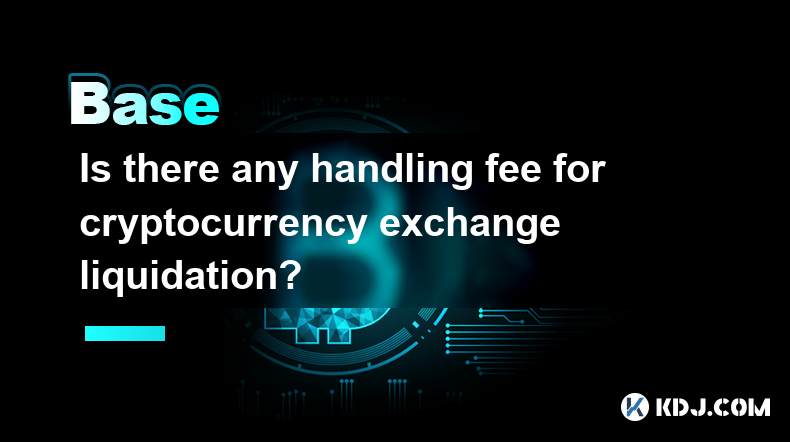
When trading contracts on cryptocurrency exchanges, liquidation is a word that scares investors. A liquidation means that the investor has lost all its principal. So, will the exchange still charge a handling fee when the liquidation is liquidated? This is a concern for many investors. This article will give a detailed answer to this.
Important statement: Cryptocurrency contract trading is extremely risky, so please be sure to participate with caution on the basis of fully understanding the relevant knowledge. This article is for information reference only and does not constitute any investment advice.
1. What is a liquidation?
A liquidation refers to the act of forced liquidation of the exchange when the margin balance of the account is lower than the maintenance margin level in contract transactions. Maintenance margin refers to the minimum margin amount required to maintain the current position.
Filing positions usually occurs when the market fluctuates violently. When the price develops in a direction that is unfavorable to investors, resulting in serious account losses and insufficient margin to maintain the position, the exchange will force the position to close the position to avoid investors continuing to lose money and avoid the exchange taking greater risks.
2. Are there any handling fees charged when the stock is liquidated?
There are different regulations on whether a handling fee is charged when a position is liquidated. Generally speaking, there are two situations:
Charge the filing fee:
Some exchanges will charge a certain liquidation fee when liquidation is lost. This fee is usually used to pay the exchange's risk reserves to deal with the risks brought about by market volatility.
The charging method and fee rate of liquidation fees vary. Some exchanges will charge them at a certain proportion of the liquidation amount, while some exchanges will charge a fixed handling fee.
For specific collection standards, please refer to the exchange's official announcement or contract trading rules.
No charge for liquidation fee:
Other exchanges have made it clear that there will be no handling fees when the position is liquidated. These exchanges usually cover risks through other methods, such as increasing transaction fees, reducing leverage multiples, etc.
3. Constitution of liquidation costs
Even if the exchange does not charge a liquidation fee, some fees will still be incurred during the liquidation, which mainly include:
Forced closing fee: When a exchange forces closing position, a certain transaction fee needs to be paid. This part of the fee is the same as the normal transaction fee.
Loss sharing of position penetrating losses: In extreme market conditions, if the exchange's risk reserve is not enough to cover the losses of all users with liquidated positions, the profitable users may share the loss of position penetrating losses.
4. How to avoid overturning positions?
Filing positions is the most terrifying result in contract trading, so investors should take measures to avoid firing positions as much as possible:
Control leverage multiple: The higher the leverage multiple, the higher the risk. It is recommended that novices use a lower leverage multiple to gradually accumulate experience.
Reasonable control of positions: Do not invest all funds into a single contract, but should diversify investment and control positions.
Set stop loss: Set the stop loss point and stop loss in time when the price develops in an unfavorable direction to avoid the loss from expanding.
Pay attention to market trends: Pay close attention to market conditions and adjust trading strategies in a timely manner.
Improve risk awareness: fully understand the risks of contract transactions and participate with caution.
5. Summary
Whether a cryptocurrency exchange charges a handling fee for a liquidation depends on the exchange's regulations. Some exchanges charge liquidation fees, while others do not. Regardless of whether the liquidation fee is charged or not, liquidation will bring huge losses to investors. Therefore, investors should raise their risk awareness and take measures to avoid overturning positions as much as possible.
Important tip: The information provided in this article is for reference only and does not constitute any investment advice. Before conducting contract trading, be sure to read the exchange's rules carefully and fully understand the relevant risks.
Disclaimer:info@kdj.com
The information provided is not trading advice. kdj.com does not assume any responsibility for any investments made based on the information provided in this article. Cryptocurrencies are highly volatile and it is highly recommended that you invest with caution after thorough research!
If you believe that the content used on this website infringes your copyright, please contact us immediately (info@kdj.com) and we will delete it promptly.
- Top Performing AI Tokens In Today's Market - Updated List
- 2025-04-18 14:10:13
- As altcoin volatility intensifies and investor trust falters, top analysts warn that the next altcoin season could collapse
- 2025-04-18 14:10:13
- Looking to Buy the Next Big Cryptocurrency? Qubetics, Bitcoin, and Mantra Are Poised to Shape the Future of Digital Finance
- 2025-04-18 14:05:13
- Dogecoin (DOGE) Approaches a Critical Price Point
- 2025-04-18 14:05:13
- Mutuum Finance (MUTM) Quietly Dominates Pre-Sale Metrics Ahead of Launch
- 2025-04-18 14:00:12
- Verdict: Bitcoin Prosystem offers a polished trading environment
- 2025-04-18 14:00:12
Related knowledge
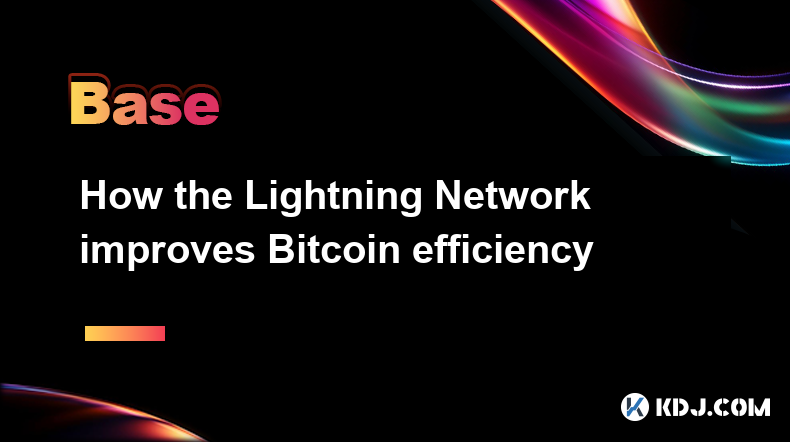
How the Lightning Network improves Bitcoin efficiency
Apr 17,2025 at 08:56pm
The Lightning Network represents a significant advancement in the Bitcoin ecosystem, aiming to address some of the most pressing issues related to transaction speed and cost. By enabling off-chain transactions, the Lightning Network drastically improves Bitcoin's efficiency, allowing for faster and cheaper transactions. This article will explore how the...

Analysis of the KYC process of cryptocurrency exchanges
Apr 17,2025 at 05:07pm
The Know Your Customer (KYC) process is a critical component in the operations of cryptocurrency exchanges. It serves as a regulatory measure to prevent fraud, money laundering, and other illicit activities. KYC procedures are designed to verify the identity of users and ensure compliance with financial regulations. This article delves into the various ...

What does Floor Price mean in the NFT market
Apr 17,2025 at 12:42am
The term Floor Price is a critical concept within the NFT (Non-Fungible Token) market, serving as a key indicator for both buyers and sellers. In essence, the floor price represents the lowest price at which an NFT from a particular collection is currently listed for sale on a marketplace. This price point is crucial for understanding the perceived valu...
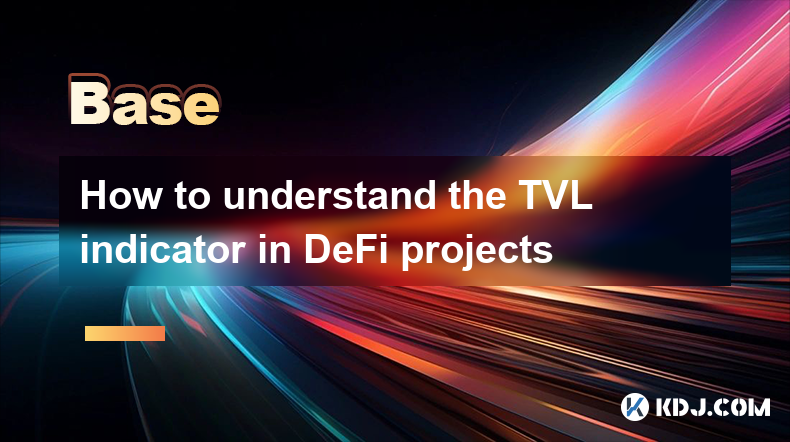
How to understand the TVL indicator in DeFi projects
Apr 17,2025 at 03:28pm
Understanding the TVL indicator in DeFi projects is crucial for investors and enthusiasts looking to gauge the health and popularity of decentralized finance platforms. TVL, or Total Value Locked, represents the total amount of assets that are currently staked or locked in a DeFi protocol. This metric serves as a barometer for the trust and interest tha...
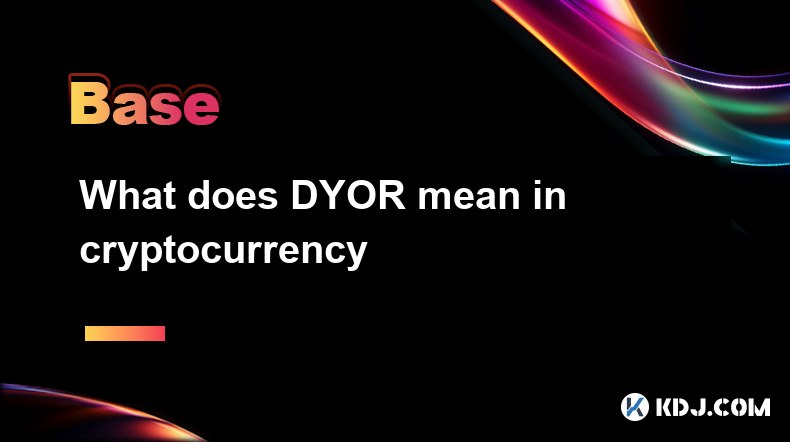
What does DYOR mean in cryptocurrency
Apr 17,2025 at 03:00pm
DYOR, or 'Do Your Own Research,' is a crucial mantra in the cryptocurrency community. It emphasizes the importance of individuals conducting their own thorough investigations before making any investment decisions. In the fast-paced and often volatile world of cryptocurrencies, relying solely on others' advice or the hype surrounding a particular coin c...
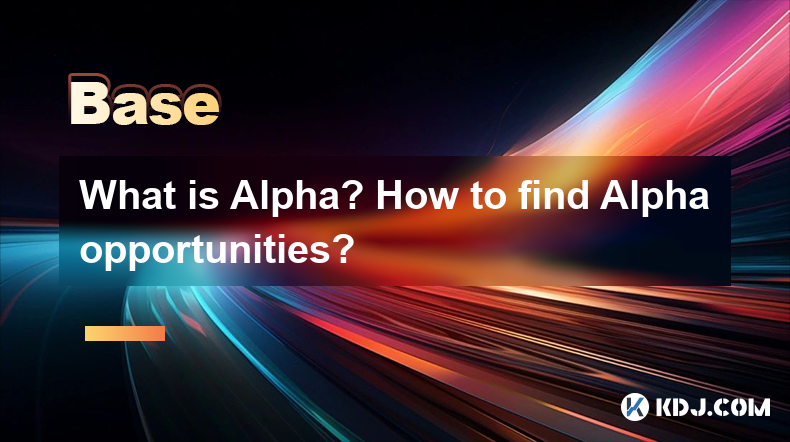
What is Alpha? How to find Alpha opportunities?
Apr 16,2025 at 12:42pm
What is Alpha?Alpha is a term widely used in the financial world, including the cryptocurrency market, to describe the ability of an investment to outperform a benchmark. In the context of cryptocurrencies, alpha refers to the excess return an investor achieves over the market's average return. For example, if the overall crypto market grows by 10% in a...

How the Lightning Network improves Bitcoin efficiency
Apr 17,2025 at 08:56pm
The Lightning Network represents a significant advancement in the Bitcoin ecosystem, aiming to address some of the most pressing issues related to transaction speed and cost. By enabling off-chain transactions, the Lightning Network drastically improves Bitcoin's efficiency, allowing for faster and cheaper transactions. This article will explore how the...

Analysis of the KYC process of cryptocurrency exchanges
Apr 17,2025 at 05:07pm
The Know Your Customer (KYC) process is a critical component in the operations of cryptocurrency exchanges. It serves as a regulatory measure to prevent fraud, money laundering, and other illicit activities. KYC procedures are designed to verify the identity of users and ensure compliance with financial regulations. This article delves into the various ...

What does Floor Price mean in the NFT market
Apr 17,2025 at 12:42am
The term Floor Price is a critical concept within the NFT (Non-Fungible Token) market, serving as a key indicator for both buyers and sellers. In essence, the floor price represents the lowest price at which an NFT from a particular collection is currently listed for sale on a marketplace. This price point is crucial for understanding the perceived valu...

How to understand the TVL indicator in DeFi projects
Apr 17,2025 at 03:28pm
Understanding the TVL indicator in DeFi projects is crucial for investors and enthusiasts looking to gauge the health and popularity of decentralized finance platforms. TVL, or Total Value Locked, represents the total amount of assets that are currently staked or locked in a DeFi protocol. This metric serves as a barometer for the trust and interest tha...

What does DYOR mean in cryptocurrency
Apr 17,2025 at 03:00pm
DYOR, or 'Do Your Own Research,' is a crucial mantra in the cryptocurrency community. It emphasizes the importance of individuals conducting their own thorough investigations before making any investment decisions. In the fast-paced and often volatile world of cryptocurrencies, relying solely on others' advice or the hype surrounding a particular coin c...

What is Alpha? How to find Alpha opportunities?
Apr 16,2025 at 12:42pm
What is Alpha?Alpha is a term widely used in the financial world, including the cryptocurrency market, to describe the ability of an investment to outperform a benchmark. In the context of cryptocurrencies, alpha refers to the excess return an investor achieves over the market's average return. For example, if the overall crypto market grows by 10% in a...
See all articles
























































































